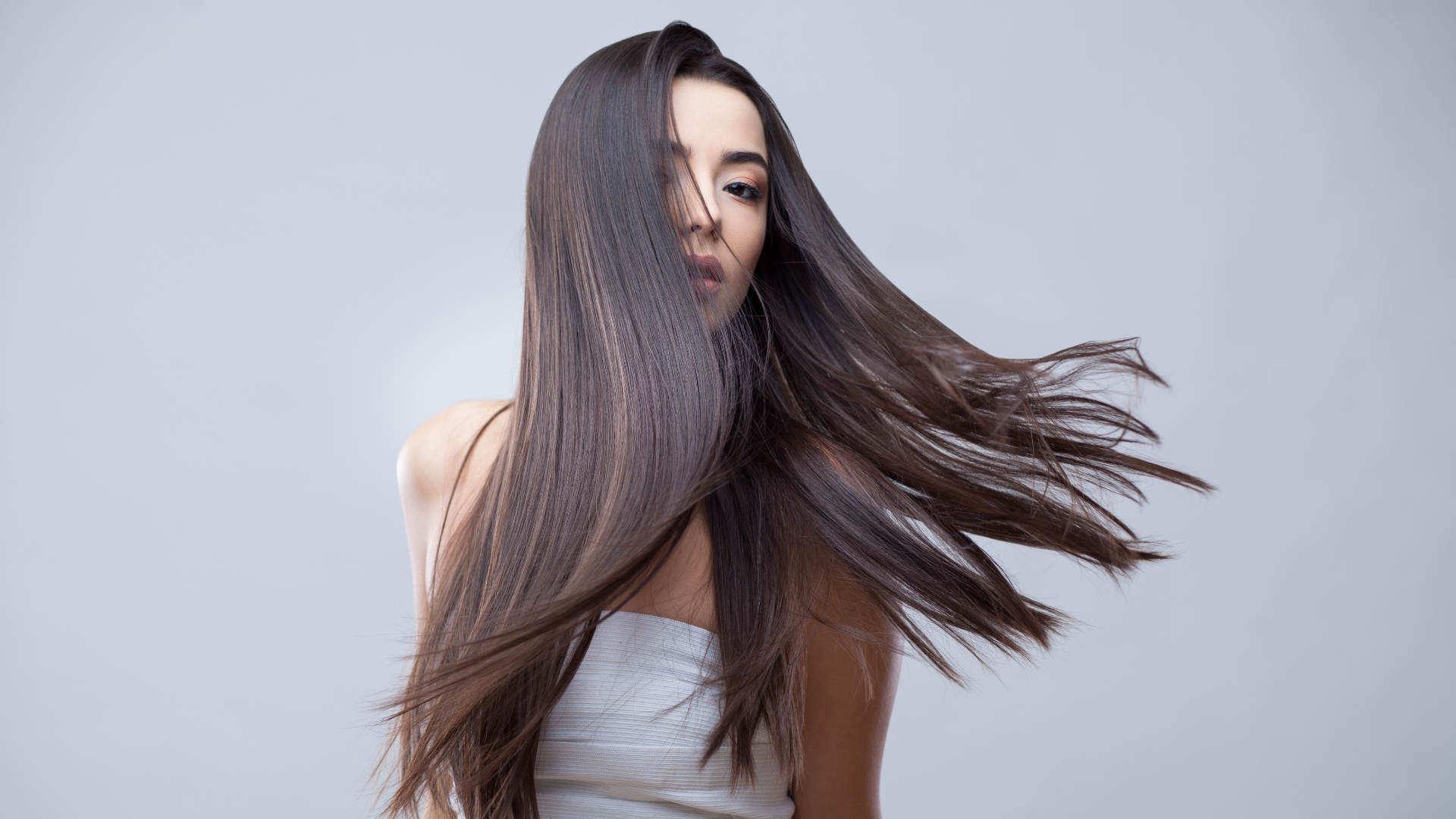If you have been using hair bonding glue to attach your hair extensions, then you’re aware that hair glue can sometimes be problematic. Not only can hair bonding glue cause problems like hair loss and thinning, but it can also lead to irritation, redness, allergic reactions, and more. If you would like to continue wearing hair extensions but you’d like to refrain from using hair bonding glue, you might be looking for an alternative.
Here is an overview of some viable substitutions for hair glue, so you can continue to wear the extensions that you love, but without the risk of encountering permanent complications.
Why is hair bonding glue so problematic?
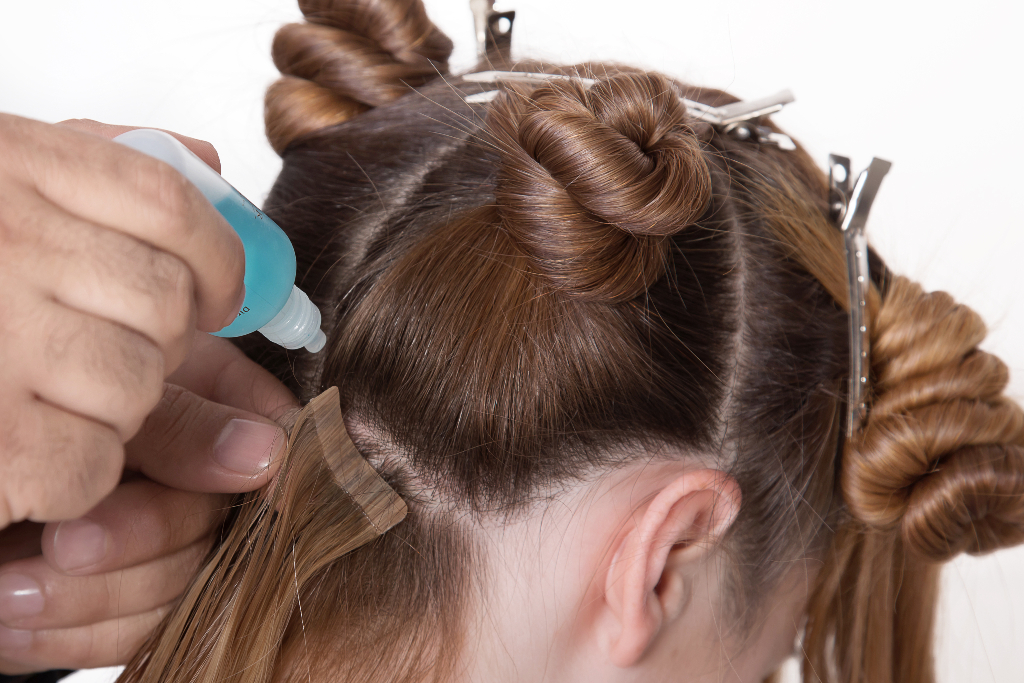
Despite the fact that hair bonding glue is very effective at bonding hair extensions to your natural hair, hair glue consists of various chemicals, as well as large amounts of latex. Many people who have latex allergies may be unaware that bonding glue often contains latex, which can lead to adverse reactions. In addition, the chemicals that are in hair bonding glue can cause irritation, redness, and allergic reactions.
Hair bonding glue also prevents the circulation of air to the scalp, which could lead to the hair becoming dry and brittle, and a person could even sustain permanent hair and scalp damage as a result. Many women like the way bonding glue functions so much that even if they’re aware of the risks, they still choose to use these products. If you have used your fair share of hair bonding glue and would not like to chance undesirable side-effects any longer, there are some substitutes that you can use.
A safe bonding glue?
One possible substitute for potentially harmful bonding glue is a chemical and latex-free version of hair bonding glue. If you want to refrain from using hair bonding glue simply because you want to avoid latex and dangerous chemicals, then this is a great option for you. However, if you want to avoid using glue for your extensions altogether, then it’s likely not a great alternative. If you would like to try non-toxic hair bonding glue, then there are many currently on the market. The only negative aspect is that these all-natural bonding glues are water soluble, meaning that water can easily remove this glue, so as soon as you wash your hair, the hair extension will come out.
Can you use wood shop or gorilla glues as safer alternatives to hair glue?
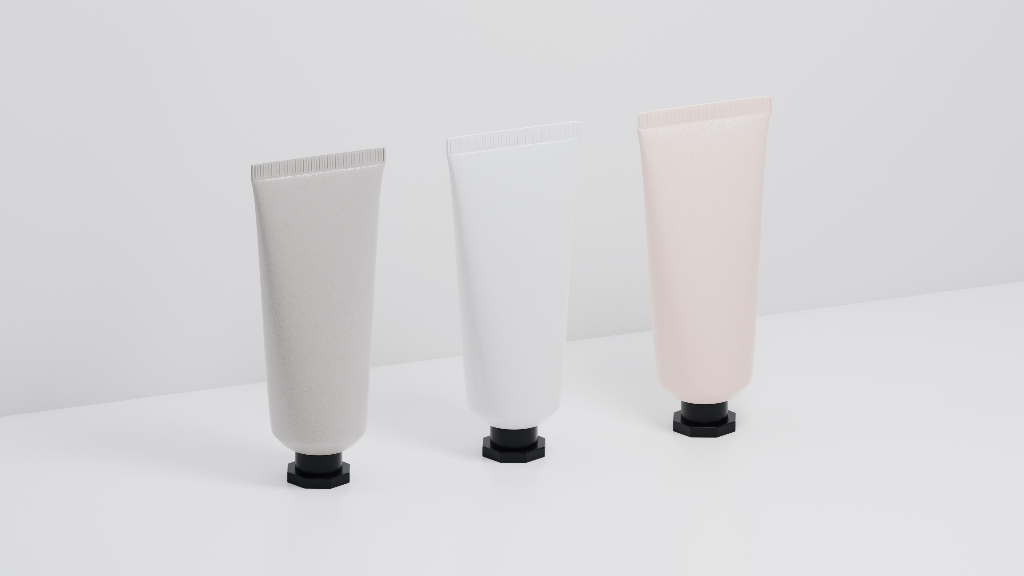
Many women have used Gorilla Glue as well as other types of glues that aren’t intended for use on the body in order to attach their hair extensions. The experience was often positive when it came to how well the glue was able to bond the hair extensions to a person’s hair. However, the use of Gorilla Glue or other glues that aren’t intended for use on the skin are not recommended as safe alternatives to hair glue. These glues can cause even more severe side-effects than hair glue can, including permanent scalp damage, scalp burns, anaphylaxis, rashes, and much more.
Sew-in hair extensions as an alternative to bonding glue
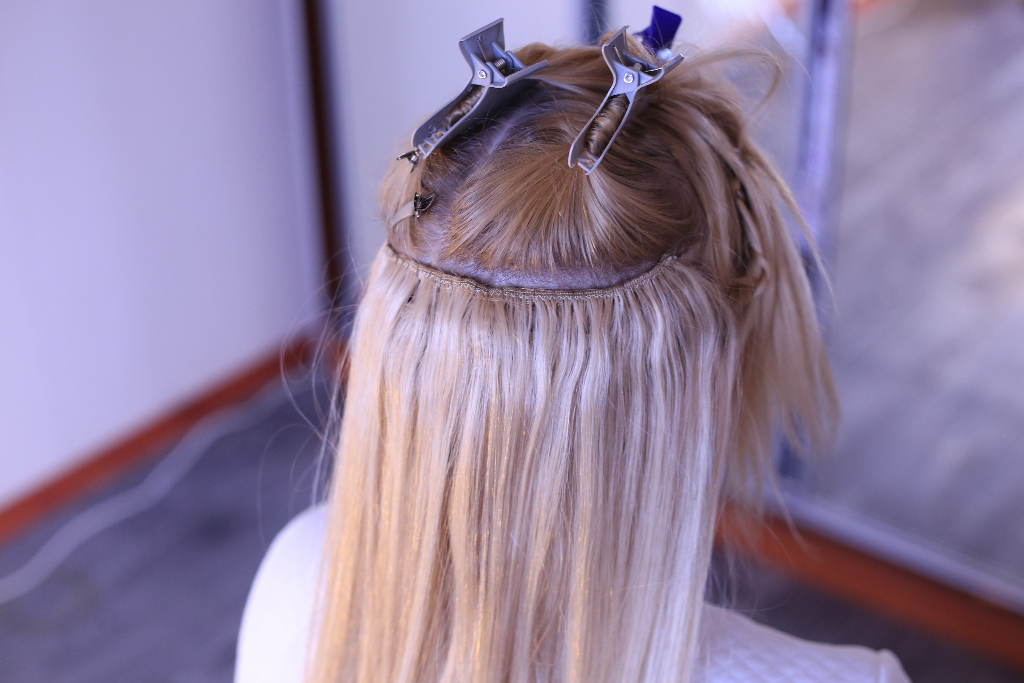
Many women who no longer want to use any type of glue to attach hair extensions often opt for sew-ins. What are sew-ins? A sew-in is a hair extension that is sewn onto the natural hair that has been braided using special hair needles that do not puncture the scalp in any way. Sew-ins last a lot longer than extensions that have been glued in, but people often state that sew-ins are way too painful. With a sew-in, a person’s natural hair is pulled very tightly into the braids, which can cause pain, and then the extensions can pull on the natural hair, resulting in even more pain. This is one reason why women who try sew-ins often decide to look for another option in the future.
Clip-in hair extensions as an alternative to hair glue
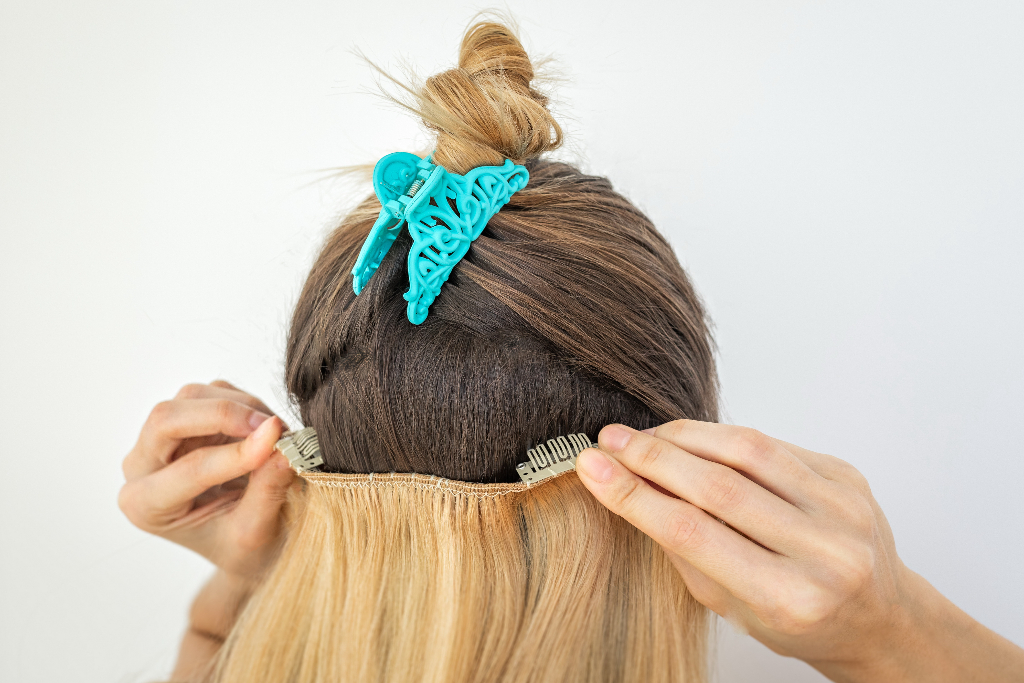
There is also the possibility of using special clips that are small in size in order to attach hair extensions. These clips are applied in a manner in which they’re not visible, so hair extensions appear beautiful and natural. Some people don’t like clip-ins because they can be heavy, and if your hair is particularly short, it can be difficult to attach the extensions.
DIY glue recipe?
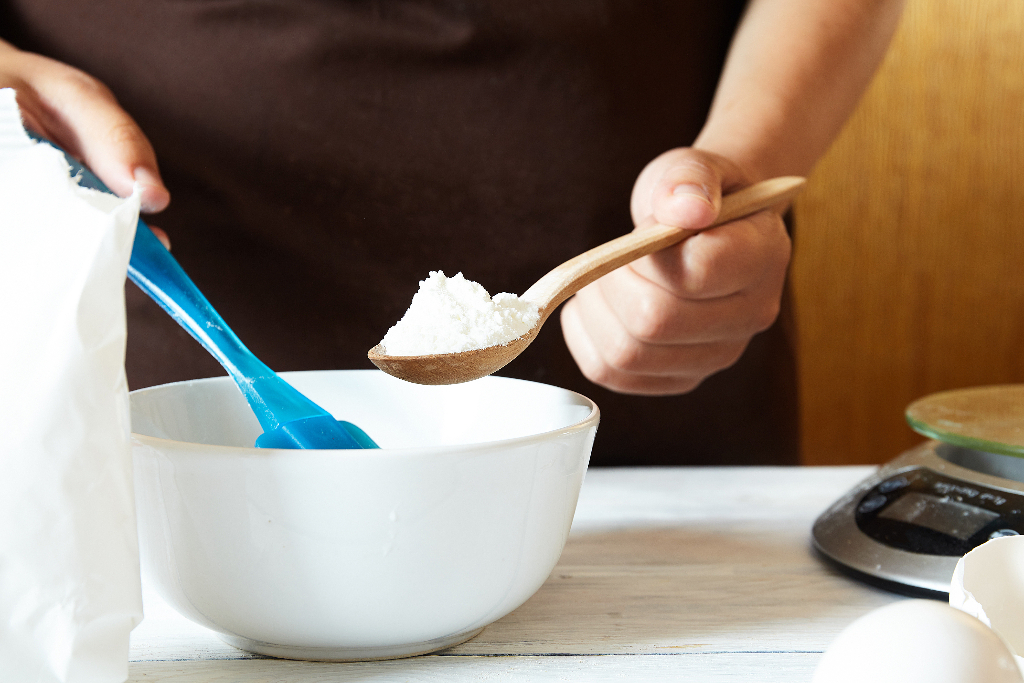
Many hair extension lovers have come up with ingredients to mix together that work as all-natural, homemade hair glue alternatives. There are many recipes online, but most of them include everyday household ingredients that you can find in your kitchen, like sugar, vinegar, baking soda and dried milk. These DIY glue recipes will probably work to adhere extensions to your head for a short time, but they’re not likely to keep extensions attached long-term.
Conclusion
As you can see, there is no reason to settle for risking serious complications by using hair bonding glue if you don’t want to. There are many alternatives, but you just have to perform the necessary research in order to determine which alternative is best and safest for you. Regardless of the alternative you choose for your hair extensions, hopefully it will meet, if not, exceed your expectations.

